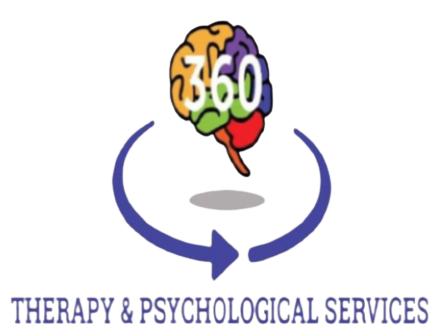5 Key Advantages of Individual Counseling for Improving Your Relationships

Introduction
In today’s fast-paced world, maintaining healthy relationships can be challenging. Individual counseling therapy offers a personalized approach to help individuals address and resolve personal issues, ultimately leading to stronger and more fulfilling relationships. In this blog post, we’ll explore what individual counseling is, its advantages, how to find and conduct sessions, and answer frequently asked questions.
What is Individual Counseling Therapy?
Individual counseling therapy is a collaborative process between a therapist and a client. It aims to help individuals understand their thoughts, feelings, and behaviors, and make positive changes in their lives. Unlike group therapy, individual counseling provides a one-on-one setting, allowing for a more personalized and focused approach.
What are the Advantages of Individual Counseling Therapy?
- Improved Self-Awareness: Understanding one’s emotions and behavior patterns is crucial for personal growth and relationship building.
- Enhanced Communication Skills: Effective communication is key to healthy relationships. Counseling helps individuals express themselves more clearly and listen actively.
- Better Emotional Regulation: Managing emotions effectively can reduce conflicts and misunderstandings in relationships.
- Increased Empathy and Understanding: Counseling fosters empathy, helping individuals understand their partner’s perspective and feelings better.
- Strengthened Problem-Solving Abilities: Developing problem-solving skills can help individuals navigate challenges in their relationships more effectively.
How to Do Individual Counseling Therapy
- Finding a Qualified Therapist: Look for licensed professionals who specialize in individual counseling. Recommendations from friends, family, or healthcare providers can be helpful.
- Setting Goals for Counseling: Clearly define what you want to achieve through therapy. Goals can range from managing stress to improving relationship dynamics.
- What to Expect in Sessions: Initial sessions typically involve assessment and goal-setting. Subsequent sessions focus on working towards these goals through various therapeutic techniques.
- Importance of Commitment and Consistency: Regular sessions and active participation are essential for making progress in therapy.
Characteristics of Individual Counseling Therapy
- Confidentiality and Privacy: Individual counseling sessions are confidential, providing a safe space for clients to share their thoughts and feelings without fear of judgment.
- Personalized Approach: Therapy is tailored to the unique needs and goals of each client.
- Flexibility in Scheduling and Pacing: Sessions can be scheduled at convenient times, and the pace of therapy is adjusted based on the client’s progress.
- Therapeutic Relationship Dynamics: Building a trusting relationship with the therapist is crucial for effective therapy.
Where Can One Find Individual Counseling Therapy Sessions?
- Individual Therapy Center: These centers specialize in providing one-on-one counseling services. They often have a team of therapists with various specialties.
- Private Practices: Many licensed therapists offer individual counseling in private practice settings.
- Community Health Centers: These centers provide affordable counseling services to individuals in the community.
- Online Therapy Platforms: Virtual counseling has become increasingly popular, offering convenience and accessibility.
- University Counseling Centers: Students can often access free or low-cost counseling services through their university.
How Does One Conduct Individual Counseling Therapy Sessions?
- Initial Assessment and Goal Setting: The therapist conducts an assessment to understand the client’s needs and helps set specific, measurable goals.
- Techniques and Approaches Used: Therapists may use various techniques such as cognitive-behavioral therapy (CBT), psychodynamic therapy, or humanistic therapy, depending on the client’s needs.
- Session Structure and Progression: Sessions typically start with a check-in, followed by working on specific issues or goals, and concluding with a summary and homework assignments if applicable.
- Evaluating Progress and Adjusting Strategies: Regular evaluations help track progress and make necessary adjustments to the therapy plan.
Frequently Asked Questions (FAQs)
What are the different types of individual counseling?
- Cognitive-Behavioral Therapy (CBT): Focuses on changing negative thought patterns and behaviors.
- Psychodynamic Therapy: Explores unconscious processes and past experiences.
- Humanistic Therapy: Emphasizes personal growth and self-actualization.
- Integrative or Eclectic Therapy: Combines elements from different therapeutic approaches to suit the client’s needs.
What is the difference between group and individual counseling?
- Personalization and Focus: Individual counseling offers a more personalized approach, focusing solely on the client’s issues.
- Group Dynamics vs. One-on-One Interaction: Group counseling involves multiple participants, providing opportunities for peer support and shared experiences.
- Different Therapeutic Benefits and Challenges: Individual counseling provides more privacy and tailored support, while group counseling offers diverse perspectives and communal support.
Conclusion
Individual counseling therapy provides numerous benefits that can significantly improve your relationships. By fostering self-awareness, enhancing communication skills, and developing better emotional regulation, counseling helps individuals build stronger, more fulfilling connections with others. If you’re seeking support, consider reaching out to a professional at an individual therapy center, private practice, or online platform. Taking the step towards individual counseling can lead to a healthier, happier you.
recent post

Best Tips for Choosing the Right Family Doctor for Your Health Care

What to Expect from Psychodiagnostics Assessment – A Complete Guide


How to Find the Right Therapist for Your Mental Health Matters


